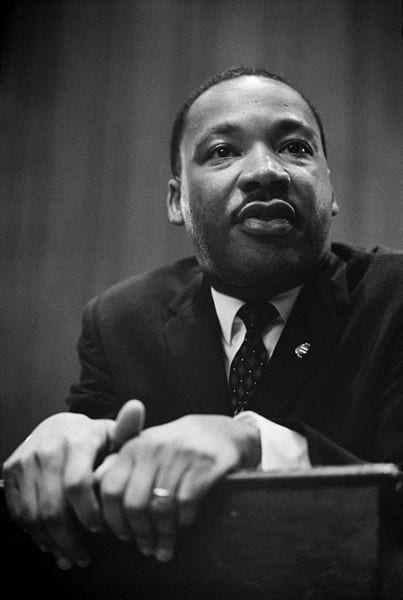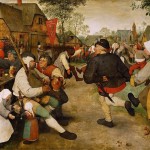Ordinary Time
21 January 2019
The Edge of Elfland
Concord, NH

Dearest Readers,
Today is my birthday. It is also the day we celebrate Dr. Martin Luther King Jr., as well as the day before the 46th anniversary of the Roe v. Wade court decision. It’s a complicated day to say the least.
I can’t help but feel reflective. After all, I was the unwanted child of two people with drug problems. It’s easy to paint myself into the narrative of the March for Life which was held this weekend. After all, I myself have claimed that I was, at the very least, a prime candidate for abortion. I was my birth-mother’s fourth child from a fourth father. She had, as I understand it, had her other children taken away from her at various times and now she finds herself pregnant again. While since my birth my relationship with her has been fraught at best, toxic at worst, I still love and respect her both for the decision to have me and for the decision to give me up for adoption (a topic on which I have written to you before here). But my narrative is one of uncertainty.
I don’t know what went through her head when she realized she was pregnant again. For all I know abortion was never on the table. For all I know she was happy to find out she was pregnant. In all likelihood, I’ll never know. So I can’t claim as many at the March and around the world can and have this weekend that I am a survivor of abortion, or potential abortion. I wouldn’t want to sully others’ stories with my own. And yet, I still can’t help but think of my own birth in connection with the March for Life.
Equally, I cannot help but think about the March for Life in light of the life and work of the Rev. Dr. Martin Luther King Jr. Many, myself included, have drawn parallels between slavery, the civil rights movement, and abortion. In all cases we are talking about rights for those not considered fully human. People today lead peaceful marches to protest laws they believe to be unjust. After all, Dr. King, in his “Letter from a Birmingham Jail,” answers the question raised by his fellow clergymen, How can you call on people to break the law?
The answer lies in the fact that there are two types of laws: just and unjust. I would be the first to advocate obeying just laws. One has not only a legal but a moral responsibility to obey just laws. Conversely, one has a moral responsibility to disobey unjust laws. I would agree with St. Augustine that “an unjust law is no law at all.”
His peaceful marches, his desire to create tension was to help other realize the plight of the black man and woman. Similarly, people now march to show the plight of the unborn. There is a similarity, but there is also a difference.
First of all, in many ways, Dr. King’s demonstrations were effective. Jim Crow laws were repealed, and things got a little better for African-Americans. Of course, as I’ve said, the demonstrations were effective, though perhaps not totally successful since racism still runs rampant. And yet, after 45 years of marching not much has changed. And just as the laws that have been repealed and put in place since the Civil Right’s Movement have not done enough to stop the tides of racism, neither, likely, will a simple repeal of Roe v. Wade do nearly enough to stop the abortion of unborn children.
Second, there is a danger in drawing too close parallel between slavery and abortion. After all, if unborn children are the slaves in this analogy, who are the slave owners? Who are the sinners? Are they the mothers having the abortions? Certainly many politicians and religious leaders seem to think so as they advocate punishing women who procure abortions. Are they the doctors? Like all analogies, this one, which I still think helpful, does too. The problem is, some people don’t see the breakdown. They don’t see that unlike the wealthy plantation owners who wanted to maintain wealth on the backs of slaves, the average person getting an abortion is not some “kept wife” who wants to keep her figure. Rather it is middle-class and lower-class women who are often put into a position of having to choose between feeding the children they already have or having another mouth to feed. Many seem to ignore the fact that most women make this decision under a kind of social duress, since we do live in with a culture of death. Ask anyone with children and they can tell you that most of society is not made for families. Look at how expensive it is to buy a car big enough to haul a big family, or the fact that families must have two incomes in order to feed and care for their children and each other.
My birthday comes at a complicated time of year. I am of a jovial and sanguine disposition, so I will still manage to celebrate and be joyful today. But that does not mean for a second that I am still praying and doing whatever I can to work against oppression in all its forms, whether the oppressed are minorities, unborn children, women, or families. I hope you will do the same.
Sincerely,
David Russell Mosley











